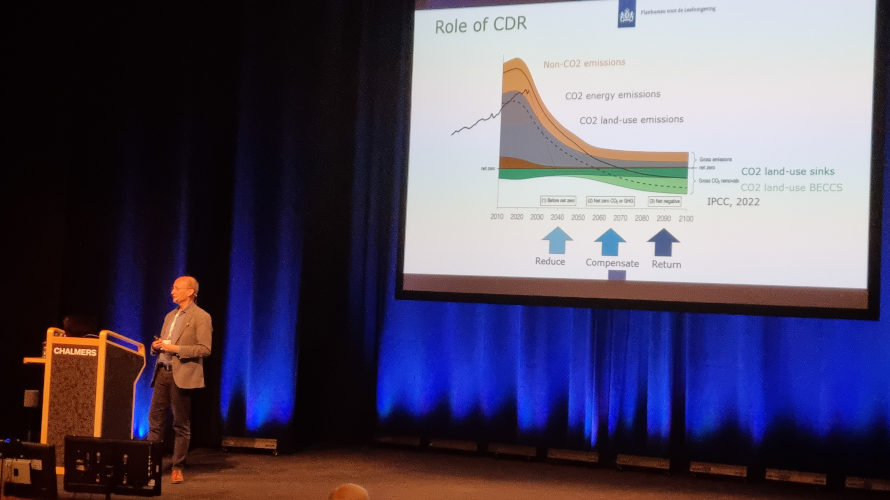A four-day conference was held in Gothenburg from June 14-17: The 2nd International Conference on Negative Emissions, focused on the importance of negative emissions to mitigate global climate change.
Emissions must be reduced, and quickly. Meetings between researchers and other stakeholders are meaningful to accelerate this change and the conference provided exactly the type of forum needed to do so. Research makes up the entire foundation of BECCS. Without the work of researchers like Professor Sabine Fuss, Stockholm Exergi would not be where we are today. Her scientific articles in Nature, among other journals, were one of the most important cornerstones of our investment in BECCS.
The conference assembled many of the most highly regarded international climate and negative emissions researchers. Having them all in one place is rewarding in and of itself, but it also gives weight to the issue and provides fantastic conditions for the necessary exchange of ideas. Over four days, presentations outlining the latest progress in negative emissions research were interspersed with panel discussions and meetings, both spontaneous and planned.
For my part, meetings with researchers, politicians and environmental organisations provided the most value. Some examples that come to mind are having coffee in the sun and discussing the latest IPCC report with Professor Oliver Geden, one of the report’s many contributing authors, or listening to professor Detlef van Vuuren (pictured above) speak about how tackling specific challenges opens up new opportunities. I’ve read their research and that of others, but it makes a big difference to discuss the issues in person and to hear their reflections as it pertains to the here and now, as well as in the larger context. What do they think is most important in this field, and how do I feel about that?
I really appreciated the dynamic of my conversations during the conference. Pushing the boundaries of our knowledge is a foundation of academia and research. By challenging ”what we know”, we can obtain new insights and new knowledge.
The conference’s international context also make the need for of BECCS much clearer. How are all of the different projects in progress regarded from an international perspective? I feel very strongly that we at Stockholm Exergi are on the right path. We are regarded as a flagship project, and we must succeed. The international community expects it. If we do, we will pave the way for many others. And many others will be needed to implement BECCS, because one thing from the latest IPCC report is for sure: without BECCS we will probably not be able to limit global warming to 2 °C, let alone 1.5 °C.

